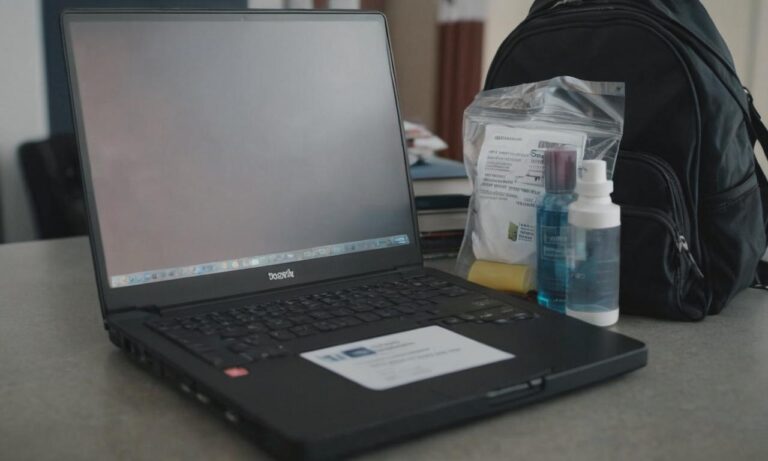Traveling by plane often requires careful consideration of what items can be brought on board, especially when it comes to medical essentials. For individuals who rely on inhalers to manage respiratory conditions, the question of whether they can take inhalers on a plane is a crucial one. In this comprehensive guide, we will explore the regulations, guidelines, and best practices regarding the transportation of inhalers during air travel.
Understanding Air Travel Regulations
When it comes to bringing inhalers on a plane, the good news is that most airlines and aviation authorities recognize the importance of allowing passengers to carry necessary medical devices. Inhalers, being vital for individuals with asthma or other respiratory issues, are typically permitted in both carry-on luggage and checked baggage.
It’s essential to note that regulations may vary slightly among different airlines and countries, so passengers are advised to check with their specific airline and review the regulations of the relevant aviation authorities before traveling.
Carrying Inhalers in Carry-On Luggage
As a general rule, it is recommended to keep essential medications, including inhalers, in carry-on luggage rather than checked baggage. This ensures that passengers have easy access to their medication during the flight, especially in case of emergencies. Most airlines and security agencies acknowledge the need for passengers to have quick access to medical devices and allow inhalers in carry-on bags.
Passengers are advised to keep their inhalers in their original packaging, clearly labeled with their prescription details. This helps expedite the security screening process and ensures that there are no misunderstandings regarding the nature of the medication.
International Travel Considerations
For those embarking on international journeys, it’s crucial to be aware of the specific regulations of the destination country. Some countries may have additional requirements or restrictions on certain medications, and it is the passenger’s responsibility to be informed and compliant.
It’s recommended to carry a copy of the prescription or a doctor’s note explaining the necessity of the inhaler, especially when traveling to countries with stringent medication regulations. This can be particularly helpful in case there are questions during customs or security checks.
Precautions and Best Practices
While inhalers are generally allowed on planes, passengers should take some precautions to ensure a smooth travel experience. It’s advisable to carry extra inhalers in case of loss or damage. Additionally, informing the airline staff about the presence of the inhaler and any specific needs can help them provide necessary assistance if required.
It’s also recommended to check the expiration date of the inhaler and ensure that it will last for the entire duration of the trip. In case the expiration date is approaching, it’s wise to obtain a new inhaler before traveling.
Can you take inhalers on a plane? The answer is generally yes, with some considerations. Understanding and following the regulations, both from the airline and the destination country, is crucial. By being well-prepared, passengers can ensure that their essential medical devices, such as inhalers, are readily available during their journey, promoting a safe and comfortable travel experience.
Frequently Asked Questions
Traveling with inhalers may raise various questions for passengers. Here are answers to some frequently asked questions to help you navigate the air travel experience with your inhaler:
1. Can I Bring Multiple Inhalers on a Plane?
Yes, passengers are generally allowed to bring multiple inhalers on a plane. It’s advisable to carry extras in case of loss, damage, or unexpected travel delays.
2. Are Nebulizers Allowed in Carry-On Luggage?
While inhalers are commonly allowed, nebulizers, which are larger devices for respiratory treatments, may have specific regulations. Check with your airline and relevant authorities for guidance on carrying nebulizers.
3. What Should I Do if I Encounter Issues at Security Checks?
If you face any problems during security screening due to your inhaler, remain calm and explain the situation to the security personnel. Having a copy of your prescription or a doctor’s note can be beneficial in such situations.
Additional Considerations for Traveling with Inhalers
Ensuring a hassle-free journey involves considering various aspects beyond regulations. Here are additional considerations for travelers with inhalers:
| Consideration | Recommendation |
|---|---|
| Expiration Date | Check the expiration date of your inhaler before the trip and obtain a new one if needed. |
| Communication with Airline Staff | Inform airline staff about the presence of your inhaler and any specific needs to receive necessary assistance. |
| International Travel Tips | Research and understand the medication regulations of your destination country and carry necessary documentation, such as a prescription or a doctor’s note. |
Conclusion
Ensuring a smooth travel experience with inhalers involves not only adhering to regulations but also taking proactive measures. By staying informed, prepared, and communicative, passengers can confidently bring their inhalers on a plane, promoting a safe and comfortable journey.






